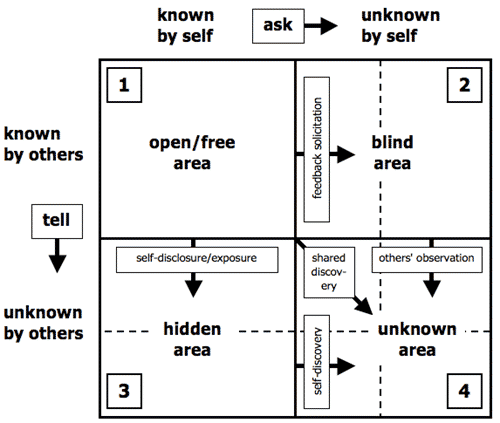

Self-awareness is a hugely complex area and one of those subjects that elicits either a deep fascination and a desire to explore more, cynicism and suspicion or complete fear and dread.
Whatever your reaction, it’s an area that is ever present in our working lives. Whether it’s through reference to the enormous body of research conducted by Sigmund Freud, Carl Jung et al., or the growing number of psychometric assessments and feedback tools which are now available in the workplace.
It’s common knowledge that self-awareness plays a key part in therapy and philosophy, but perhaps what’s less apparent is the increasing focus of self-awareness within organisations. Most of us will commonly find self-awareness – sometimes referred to as emotional intelligence – explored in one of the following settings: management and leadership development programmes, appraisal and performance management reviews, as part of assessment centres and interview processes, or during one-to-one coaching sessions.
The more senior and accountable we become, the greater the level of influence and impact we have on others. The need for increasing levels of self-awareness and capacity to adapt, change and explore more about self becomes an absolute necessity.

So what is it?
Self-awareness is about understanding your own needs, desires, strengths, weaknesses, habits, and everything else that makes you tick. The more you know about yourself, the better you are at adapting to life, change and the needs of others.
It’s about deepening your understanding of how others perceive you, being open to evaluation and your subsequent actions based on the beliefs of others. It also involves a curiosity, a desire to connect differently with others and caring about how others evaluate and see you.
Benefits
If managed well, these types of conversations and evaluations can be incredibly beneficial, offering real insight into how your preferences and perceptions of yourself and the world around you impact on others. Increasing your self-awareness opens up additional routes to personal development. It can enhance work and personal relationships, reduce stress and improve health and wellbeing.
So what are some of the ways we can begin to improve?
The Johari Window model is a simple and useful tool for illustrating and improving self-awareness. The model was devised by American psychologists Joseph Luft and Harry Ingham in 1955.
The model has four windows –
The balance between the four areas change and flex by asking people for feedback and through working with a variety of different people in changing contexts.
It’s an elegant way to measure the movement you make before and after a development intervention. From the model below, it is clear that the goal is to shrink the unknown area through self-disclosure/exposure, feedback and observation by others.

A great accompaniment to the Johari window model and a brilliant starting point for learning more about self, is the use of Self Awareness Diagnostics. There are many different tools which have been developed over the years, most of which stem from the research of Sigmund Freud and Carl Jung and their findings around Psychological types.
Insights Discovery is one such tool and offers a simple and memorable four colour energy model based on Jung’s personality characteristics A short online evaluator is completed resulting in a highly personalised and unique profile which identifies preferences of behaviour, strengths, areas of development, value you bring to the team and potential blind spots.
The beauty of these diagnostics is that they open a much broader conversation and support people to explore their individual qualities. The type of feedback that more detailed diagnostic tools like Insights Discovery produces would be delivered back through a qualified practitioner and development coach.
If you take away just one thing from this blog remember that self-improvement is impossible without self-awareness. Keen to find out how you can become more self-aware? Check out Insights Discovery here.